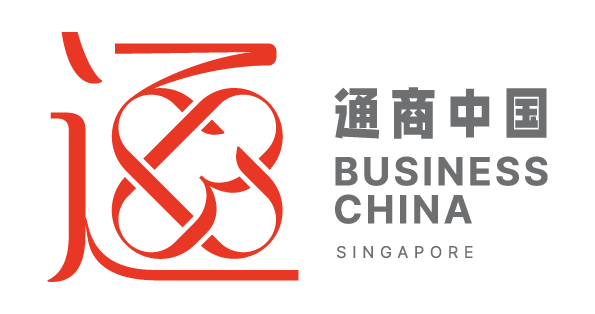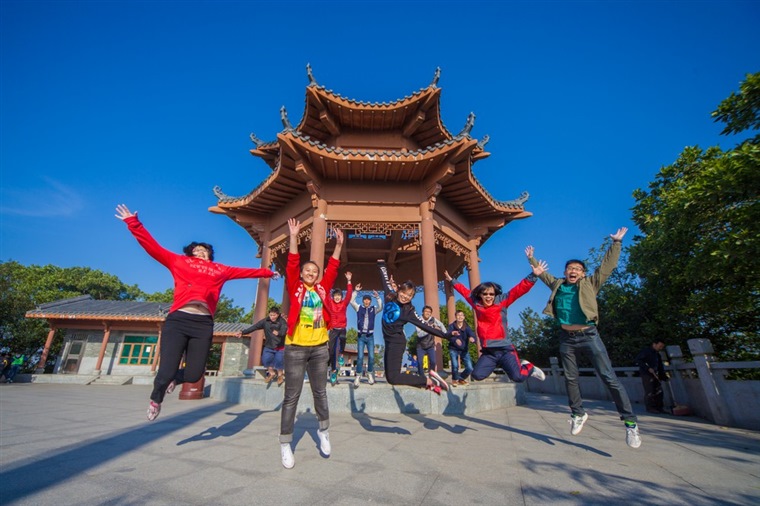Experiencing innovative Shenzhen and Guangzhou
On 12 December 2014, a delegation of 15 Business China Youth Chapter (BCYC) members embarked on a 9-day China Learning Journey to discover Shenzhen and Guangzhou. This is also the BCYC’s fifth delegation to China whereby selected Singaporean youths were given opportunities to explore and experience the ever-changing facets of this World’s soon-to-be largest economy.
In planning this trip, Business China aims to provide an effective platform for the Singaporean youth participants to keep themselves abreast with the development of contemporary China. Through company visits, interactions with local students and Singaporean businessmen venturing in China, this trip creates invaluable opportunities to build friendships and networks with professionals that serves as the basis for future collaboration. The extensive exposure to Chinese and ample opportunity to use the language during the trip also seeks to motivate participants to improve their Chinese.
This year’s trip participants hailed from National University of Singapore, Nanyang Technological University, Singapore Management University, Singapore Polytechnic, Ngee Ann Polytechnic, Victoria Junior College and River Valley High School (Junior College Section). The two junior college students joined this immersion trip as representatives of the Distinction Award teams of the 7th China Studies Seminar. Although the youths come from vastly diverse backgrounds, they have one common denominator and one aim – their deep interest about China and the will to deepen their knowledge and engagement with her.
Visiting forefront Tech Corporations and Companies with a vision for sustainable future
The journey to discover the innovative face of China kick-started with a visit to Seeed Studio in Shenzhen, a boutique hardware co-innovator that is at the forefront of open source hardware start-ups and manufacturing. Their prototype lab showcased original Chinese innovations such as the 3-D doodling pen, air keyboard, watering reminder and many more. A further tour to Huaqiangbei (华强北), Shenzhen’s and China’s largest electronic components market, revealed the very raison d’être for Shenzhen’s raise as the Silicon Valley of China. Every known and conceivable electronic component can be found here. There is even a saying, “if you can’t find it in Huaqiangbei, you can’t it in the rest of the world”. Those that can’t be found here can probably be readily custom-made. Huaqiangbei provided the very supply chain eco-system that is vital to creativity and innovation.
After the tour to Huaqiangbei, Learning Journey participants get to experience the excitement of assembling and creating their own DIY LED device – a fusion product of creativity and science, with guidance from the instructors at Chaihuo Makerspace. They also attended a 3D printing workshop and through interaction with the instructors, understood the challenges and opportunities brought about by this soon-to-be popularized technology better.
At the same end of the creativity spectrum, is a company not usually associated with forefront creativity but is nonetheless very original and forward-looking. Huawei, the world’s largest provider of telecommunication devices, build 2 galleries within their campus of 6 km2 to showcase the different range of products, catering to different customer bases. Learning Journey participants were fortunate to have the opportunity to join the opening of Huawei’s “Seeds for the Future” program and interacted with youths from other countries. The delegation was also honoured to interact with Mr David Harmon, Huawei’s Vice President of Public Affairs, and other management representatives in a meeting over lunch. Jason Su Weixun, who just completed his Juris Doctor programme at Singapore Management University, was astounded by the rapid rise of large Chinese corporations. He remarked, “Huawei’s ability to leap from a small unknown company to its current scale within a mere time frame of 27 years coincide with a saying in Sun Tze’s Art of War – a victorious army avoid what is strong and strike at what is weak.”
Before leaving Shenzhen for Guangzhou, the delegation visited Tencent and Vanke Corporate Headquarters. Tencent is the 4th largest internet company in the world in terms of enterprise value, trailing only behind Google, Alibaba and Facebook. It was indeed an exciting experience to have an up close encounter with the very company that innovated “WeChat”, the World’s most popular chat app. Vanke, although not a technology company, is at the forefront of showcasing technology for build environment sustainability. Its corporate HQ in Dameisha, a seaside resort about 50km east of Shenzhen, is an award winning green building with for example, usage of bamboo instead of wood, and using recycled aluminium cans as sound absorption wall panels. This world’s largest cable-stay commercial building also seeks to minimize energy usage with maximized use of natural lighting and cooling/heating measures.
Upon arrival in Guangzhou, the delegation visited the Sino-Singapore Guangzhou Knowledge City (SSGKC). We were fortunate to have Mr Chin Phei Chen, CEO of SSGKC, personally shared his vast experience of managing the SSGKC project with the students. A veteran of China, he also shared a personal scope of his affinity for China and his family’s bonds with China. Mr Chen Changxin, Deputy CEO of SSGKC and Mr Ang Boon Peng, Director of SSGKC Strategic Collaboration were also invited to the same sharing luncheon with the participants.
Besides SSGKC, the BCYC delegation also visited Capitamall Sky+, CapitaLand’s upcoming shopping mall in Guangzhou; and Ascott, CapitaLand’s luxurious service apartment brand. Mr Alan Lai and other key management staff shared the operational challenges and opportunities of the REIT and hospitality sector in China with the Singaporean students.
Learning from Singaporean professionals based in China
The BCYC delegation also met with fellow Singaporeans based in China, to gain from their insightful perspectives and their vast experience. Ms Sim Tzewei, Lianhe Zaobao Guangzhou correspondent took time off her busy schedule to share her personal experiences of working in China. Not only did she share her views on current Chinese political issues, she also answered the students’ curious queries on her work as an overseas correspondent. Summing up, Miss Sim encouraged local youths to step out of their comfort zone to pursue opportunities overseas, particularly in China. As the country is vast and at varied stages of development, it is one of the best place to widen ones horizon and hone a wide repertoire of skills for one’s personal and career growth.
Mr Lim Chin Loon, Chairman of Singcham Guangdong Chapter, together with 3 other members, shared their collective wisdom generously with the students during a dinner gathering. They also encouraged the students to develop good foresight and not to focus only on the immediate monetary returns. Working in China may not pay much now, but will vastly enhance their competitiveness in the long run.
The visit to Guangzhou concluded with a sharing session with Consul-General Loh Tuck Wai and Consul Ms Chay Yuen Ting; together with key representatives from Singapore government agencies: Economic Development Board, International Enterprise Singapore and Singapore Tourism Board. They each provided an overview of their respective operations and their roles in maintaining the Singapore-Chinese relations. Students engaged in enthusiastic conversations with CG Loh, Consul Chay and the agencies’ officials over tea, on topics ranging from Singapore-China bilateral ties to career experiences.
Exchange with China students
This year’s learning journey is unique in providing opportunities for Singaporean students to look at the educational and social service sector in China. Participants went to No. 117 secondary school to interact with teenage Chinese students in a conversational session to encourage them to use English to reach out to the world. The secondary school students thirst for knowledge and their motivation to better their lives, in turned, touched the BCYC members deeply and got them to reflect upon their own aspirations.
Next, the delegation went to Jinyan Afterschool Care Centre situated in a housing project to understand the childcare needs of migrant workers in Guangzhou. Participants mingled with young primary school children, coached them homework, and also played with them. These 2 visits provided real life perspectives of the sharing by Mr Wang Zhangjun, General Secretary from Luogang Communist Party Youth League, on China government’s efforts to level the playing field for children from disadvantaged families, in a bid to ensure better social mobility.
Besides younger children, the BCYC delegation also interacted with their peers from the South China University of Technology (SCUT). The 2 groups had lunch together and began informal interaction before starting the formal discussion on career choices. Low Wan Shan, currently studying at Nanyang Technological University’s Chinese Studies programme commented that “the SCUT students radiated passion, confidence, and a strong thirst for knowledge. I think Singaporean youths paled in comparison to their knowledge and scope on domestic and international affairs. The interaction and exchange between the youths extended well beyond the classroom session with outings arranged outside of the official programme, thus laying great foundation for developing friendship and camaraderie.
Reflecting on the Impact Brought from the Rise of the Dragon
The 9-day extraordinary experience has definitely left an impact on the Learning Journey participants. The trip portrait a forward-looking contemporary China that is totally different from their preconceived imagery of China. China has proven her capability to triumph in terms of financial, technological and innovative developments. With the conclusion of the journey, participants were reflecting deeply on the competitiveness of Singapore in an increasingly globalised world and how can youths better capitalise on current resources to better prepare themselves for the future.
Delegation Leader Miss Chua Wen Yi commented, “Every visit to China brings new surprises, and new experiences. This year’s trip showed me that China’s success is attributed to the Chinese not being afraid of failure. They are only afraid to not be given the opportunity. This is the attitude that young Singaporeans should adopt too.”

